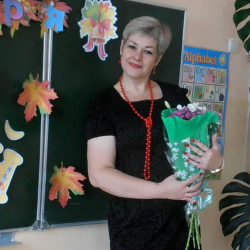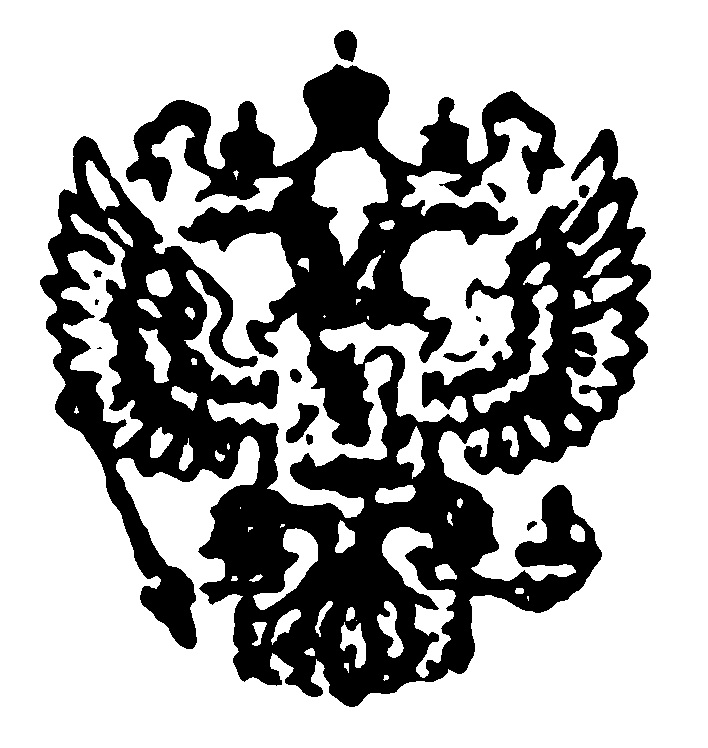
Тайгинский институт железнодорожного транспорта
филиал государственного образовательного учреждения
высшего профессионального образования
«Омский Государственный университет путей сообщения»
ФАКУЛЬТЕТ СРЕДНЕГО ПРОФЕССИОНАЛЬНОГО ОБРАЗОВАНИЯ
«ТАЙГИНСКИЙ ТЕХНИКУМ ЖЕЛЕЗНОДОРОЖНОГО ТРАНСПОРТА»
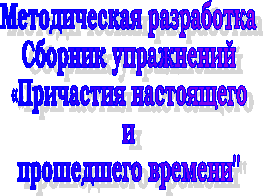

Сборник упражнений
«Причастия настоящего и прошедшего времени».
Данное методическое пособие предназначено для студентов 1-4 курсов по дисциплине «Иностранный язык» всех специальностей.
Предлагаемое методическое пособие содержит четыре раздела:
1. Теоретический материал по теме «Причастия»;
2. Упражнения на усвоение грамматического материала;
3. Тесты по теме «Причастие»;
4. Ключи к тестам.
Пособие составлено с учетом современных действующих программ и может применяться на всех этапах обучения английскому языку.
Это методическое пособие позволит студентам быстро подготовиться к зачетной работе, опросу или самостоятельно проверить правильность усвоения теоретического материала. Пособие предназначено как для самостоятельной работы, так и для аудиторной работы под контролем преподавателя.
Раздел 1
ПРИЧАСТИЕ (THE PARTICIPLE)
Причастие — это неличная форма глагола, которая обозначает признак предмета по действию и отвечает на вопросы "какой? какая? какое? какие?"
Причастия соединяют в себе грамматические признаки глагола, прилагательного и наречия.
Причастия имеют две формы:
- причастие I (Participle I)
- причастие II (Participle II)
Образование форм причастий
| Participle I
| Participle II
|
|
Образуется от основы инфинитива путем добавления окончания -ing, при этом:
- "немая" буква -е опускается (to write — writing); - конечная согласная удваивается, если перед ней стоит краткий гласный звук (to put — putting); - в глаголах to lie, to die, to tie при присоединении окончания –ing буква -i- переходит в -у- (die —dying) |
- причастие правильных глаголов образуется при помощи окончания
-ed(connect — connected); - причастие неправильных глаголов образуется особым способом (to write — written, to make — made) (см.
таблицу нестандартных глаголов) |
Отрицательная форма причастия образуется с помощью частицы not.
Например: not asking, not asked
Таблица форм причастия
| Форма причастия | Неправильные глаголы | Правильные глаголы |
|
|
Active Voice |
Passive Voice |
Active Voice |
Passive Voice |
| Present Participle (причастие настоящего времени)
го времени)
| going | — | asking | being asked |
| Past Participle (причастие прошедшего времени) | — | gone | — | asked |
| Perfect Participle (перфектное причастие) | having gone | — |
having asked |
having been asked |
Значение причастий
Present Participle (Active and Passive)
Обозначает одновременное действие с глаголом в личной форме.
Например: Seeing that I was late, I hurried.
Видя, что я опаздываю, я поторопился.
Perfect Participle (Active and Passive)
Обозначает действие, предшествующее действию, выраженному сказуемым.
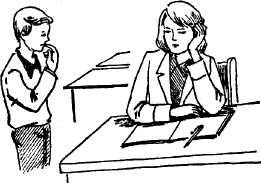
Например:
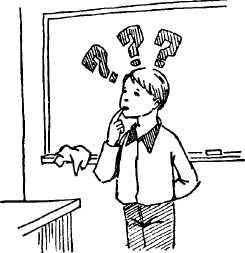
Having asked a question, the teacher Having been asked the question, the
was waiting for an answer. boy was thinking of an answer.
Задав вопрос, учительница стала Мальчик задумался над ответом,
ждать ответа. после того, как ему задали вопрос.
Past Participle (Passive)
Past Participle имеет только одну форму, имеет пассивное значение и соответствует русскому причастию страдательного залога.
Например: At our excursion we saw a building built many years ago.
На экскурсии мы увидели здание, построенное много лет назад.
Функции причастия настоящего времени в предложении
Причастие в предложении может быть:
1) определением
Например: The girl translating an article is my daughter.
Девочка, переводящая статью, — моя дочь.
2) частью простого глагольного сказуемого
Например: A page is missing from the book.
Из книги пропала страница.
3) обстоятельством
Например: Be careful while crossing the street.
Переходя улицу, будь осторожен.
Сравнительные признаки Participle I и Participle II
| Participle I | Participle II |
| может быть определением the rising sun (восходящее солнце) | тоже может быть определением the written letter (написанное письмо) |
| может вводить определительный причастный оборот Pupils studying English. (Ученики, изучающие английский язык.) | тоже может вводить определительный причастный оборот The texts studied last year. (Тексты, изучавшиеся в том году.) |
| может входить в обособленный причастный оборот Discussing the book, we decided not to read it once again. (Обсуждая книгу, мы решили не читать ее еще раз.) |
|
| имеет активное значение studying — изучающий | имеет пассивное значение studied — изученный |
Раздел 2.
Упражнения.
Упражнение 1. Переведите следующие группы слов, используя правильную форму причастия.
а) письмо, полученное вчера a letter received yesterday
получая письмо (while) receiving a letter
получив письмо having received a letter
мальчик, получающий письма a boy receiving letters
б) просматривая журналы looking through the magazines
просмотрев журналы having looked through the magazine?
журнал, просмотренный вчера a magazine looked through yesterday.
человек, просматривающий журнал a man looking through the magazine
в) написав письмо having written a letter
девочка, пишущая письмо a girl writing a letter
письмо, написанное мною a letter written by me
Упражнение 2. Какую форму вы бы использовали при переводе предложений?
Читая английские книги, я всегда пользуюсь словарем,
a) reading b) having read c) being read
Прочитав книгу, он отнес ее в библиотеку.
a) reading b) having read c) having been read
3) Книга, прочитанная мною вчера, очень интересна,
a) reading b) read с) having been read
Упражнение 3. Переведите выделенные причастия.
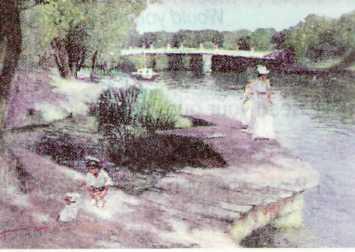
Look at the picture painted by a young artist. The lady standing on the bank of the river has two children — a boy playing with a dog and a girl following her mother. It is a warm summer day. We see some boats sailing down the river. Having come in the morning, they have been staying here for some hours. They are enjoying themselves. We see a happy family, which is in harmony with nature. Would you like to join them?
Упражнение 4. Прочитайте предложение и найдите Participle I, сделайте перевод.
1) Having tried the case the judge left the court.
2) The case being tried by the city court now is of great educational value.
3) Most trials are held in open court, the press having the right to be
present.
4) The investigator being experienced, the investigation, did not last long.
5) Having examined the causes of the crime the court passed its sentence over the criminal.
Упражнение 5. Подчеркните самостоятельный причастный оборот, переведите предложения.
1) The evidence being strong, the accused was found guilty by the jury.
2) The jury having disagreed at the first trial, the accused got a retrial.
3) The officer must show the warrant to the person being arrested and must inform him of the cause of the arrest.
4) Labor law is a system of rules regulating labour relations.
5) Having been considered by the situation in the region began to improve.
Упражнение 6. Образуйте Participle I Simple от данных глаголов и заполните пропуски по смыслу причастиями в функции определения. Переведите предложения на русский язык.
to cry, to shake, to shine, to sit, to laugh, to fall, to run, to sleep, to smoke, to wait, to speak, to stand, to follow, to play, to lose, to leave.
The mother is looking at her…child.
Do you know the name of the…tower in Pisa?
This…little girl always makes her parents do what she wants.
The…train is just the one that we haven't caught.
In winter the… sun makes us feel happy.
My brother doesn't like…girls.
This…man is the world champion.
This table has…legs.
Do you know an answer to the…question?
A woman…at the garage is our neighbour.
People…at my table are my colleagues.
The girl…for me is my sister.
Do you know the young man…the piano?
Do you understand these people…German?
I don't like people… their time.
People…at their friends are not the best people in the world.
Упражнение 7. Дополните следующие предложения Participle II в функции определения и переведите предложения на русский язык.
The policemen examined the body…behind the curtain (to hide).
Will this newspaper publish an article…from German? (to translate)
Have you heard anything about the meeting…at our office? (to hold)
Have you received a fax…from London? (to send)
We are waiting for pizza for lunch (to order).
The policemen are still looking for the picture…from the gallery (to steal).
Do you know anything about the man…in his office? (to murder)
Can you tell me the names of your colleagues…to the party? (to invite)
Could you close the window… in the kitchen? (to open)
Have you seen the book… by my uncle? (to write)
What is your opinion of the matter… at the meeting? (to discuss)
Where are the souvenirs… from Brazil? (to bring)
Who investigates the crime… at the railway station? (to commit)
I've got a few books… in England (to publish).
Раздел 3.
Тесты.
Тест № 1
Participle I / Participle II.
Choose the form of the Participle in each sentence.
A) Participle I B) Participle II
I must have the mixer (fixing, fixed).
I don't find this story (amusing, amused).
My room is a mess: I really must get it (tidying, tidied) up.
I would stay at home after such a (tiring, tired) day.
Uncle Frank has a gentle old horse (naming, named) Pete on his farm.
Can you smell something (burning, burned)?
He opened the letter with (shaking, shaken) fingers.
She had rather a (pleasing, pleased) look on her face.
Deeply (shocking, shocked) I left them.
When (answering, answered) your question yesterday I forgot this fact.
He walked along the road with his collar (turning, turned) up, hands in pockets.
I didn't enjoy the party because I was (boring, bored) there.
Why not throw away the (breaking, broken) umbrella we are not likely to repair it.
She didn't pay any attention to the (ringing, rung) telephone.
Don't you think your hair needs (cutting, cut)?
Can you think of the name of an animal (beginning, begun) with "B"?
Тест № 2.
Выберите правильный вариант ответа.
| 1. ..... out of college at the end of the first year, Judy found a secretarial job.  |
| 
| Being dropped |
| 
| Having dropped |
| 
| Dropping |
| |
| 2. The man pointed to a large pink and gray dwelling house ..... behind the parking lot.  |
| 
| towering |
| 
| being towered |
| 
| having towered |
| |
| 3. A ..... kindness deserves no thanks.  |
| 
| forcing |
| 
| forced |
| 
| having forced |
| |
| 4. A white shawl ..... around the girl’s shoulders made her look like a Greek goddess.  |
| 
| wrapped |
| 
| being wrapped |
| 
| having been wrapped |
| |
| 5. I heard them ..... in the next room.  |
| 
| quarreled |
| 
| quarreling |
| 
| having quarreled |
| |
|
6. ..... by her appearance she looked like a person whose life was hard and full of sorrows.  |
| 
| Having judged |
| 
| Judged |
| 
| Judging |
| |
| 7. ..... their car, they drove on, though it was past midnight.  |
| 
| Repairing |
| 
| Having repaired |
| 
| Having been repaired |
| |
| 8. She turned to me for help, ..... how to deal with the problem.  |
| 
| not being known |
| 
| not knowing |
| 
| not having known |
| |
| 9. Mark was seen ..... in a lively conversation.  |
| 
| engaged |
| 
| being engaged |
| 
| having been engaged |
| |
| 10. When Linda entered the room, she saw a lot of strangers and she felt ..... .  |
| 
| embarrassing |
| 
| embarrassed |
| 
| being embarrassed |
| |
| 11. I don’t really see what can be done about the ..... picture.  |
| 
| having been ruined |
| 
| being ruined |
| 
| ruined |
| |
| 12. I wonder what Doctor Brown thinks of the medical problem ..... now.  |
| 
| being discussed |
| 
| discussing |
| 
| having been discussed |
| |
| 13. Alice didn’t like her Biology classes; she thought they were ..... .  |
| 
| bored |
| 
| being boring |
| 
| boring |
| |
| 14. ..... the British museum before, I found the way there easily enough.  |
| 
| Having visited |
| 
| Visited |
| 
| Visiting |
| |
| 15. Julia sat ..... in a corner of the sofa looking extremely miserable.  |
| 
| being hunched |
| 
| hunched |
| 
| having hunched |
Раздел 4.
Ключи к тестам.
Тест № 1.
B
A
B
A
B
A
A
B
B
A
B
B
B
A
A
A
Тест № 2.
2
1
1
3
2
1
1
3
2
1
2
2
3
1
3
Список использованной литературы.
Кошманова И. И. Тесты по английскому языку. М.; «Рольф», 2001
Камянова Т. English. Практический курс английского языка. М.; «Дом славянской книги», 2008
Романова Л.И. Английская грамматика в тестах. М.; «Айрис-пресс», 2003
Ионина А.А., Саакян А.С. Английская грамматика: Теория и практика. М.; «Айрис-пресс», 2002
15




